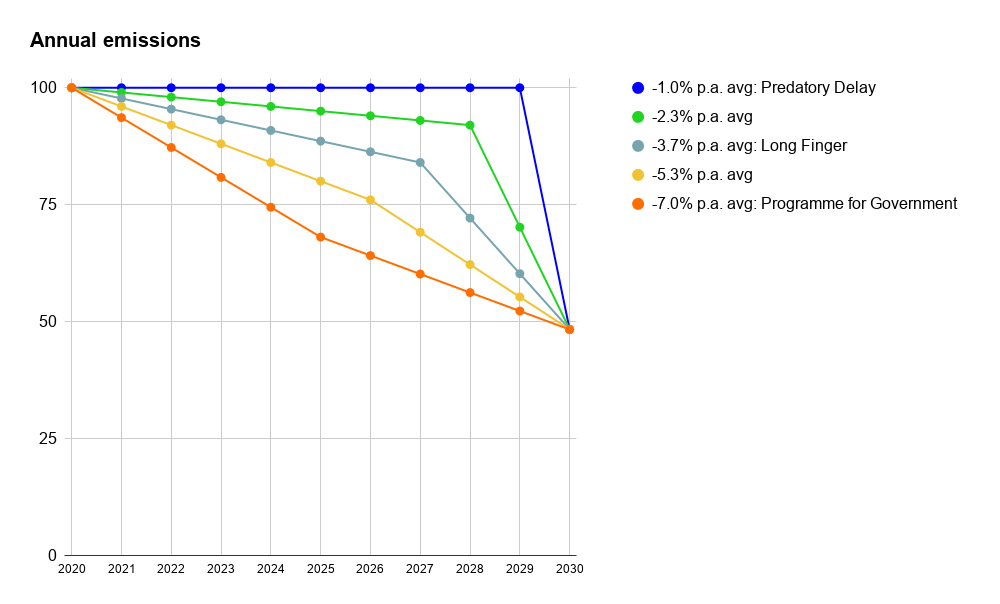Experts voice serious concern over key Climate Bill aspect

16 April 2021
The revised Climate Bill must be amended if it is to deliver on the Programme for Government’s commitments, a letter from experts to party leaders has warned.
Andrew Jackson of the Sutherland School of Law at UCD, Barry McMullin at the Faculty of Engineering and Computing at DCU, and John Sweeney, an Intergovernmental Panel on Climate Change (IPCC) scientist welcomed positive changes in the revised Bill, but stressed that it must be amended if it is to meet the Government’s end-of-decade climate targets.
The Programme for Government committed to an average 7 per cent per annum reduction in greenhouse gas emissions from 2021 to 2030, resulting in a 51 per cent reduction over the decade.
However, the language in the Bill, and in particular the inclusion of a new subsection 6A(5), is “fundamentally flawed, being at once uncertain in law and mistaken in science”, according to the letter.
The text of the Bill is legally unclear and could allow for multiple conflicting interpretations, which is “just bad law-making and needs to be fixed in itself,” according to the expert authors.
Otherwise, they add, there would be a real risk of litigation seeking to overturn the Climate Change Advisory Council’s first carbon budget proposals.
By failing to specify the language, the experts put forward one interpretation whereby the Climate Change Advisory Council might lawfully propose a budget for the next ten years that amount to less than the 7 per cent figure as outlined in the Programme for Government.
The authors warn that necessary annual emissions targets could then be obscured by a “fig leaf claim” that a 51 per cent target could still be met through a staggering drop in 2029.
Such a precipitous decline would be “in practice unachievable”, they conclude.

If this is what the Bill is working towards, it represents a “clear departure from the Programme for Government’s 2030 commitment,” according to their analysis.
They also note that from a legal and scientific view the subsection is easily fixed by the wording the authors have put forward, however, they say, “the question is whether there is the political desire to fix it.”
Interim targets
During the pre-legislative scrutiny of the Climate Bill, experts repeatedly emphasized the need for interim targets, like the 2030 one, in order to ensure ongoing accountability on climate.
Dr. Aine Ryall of University College Cork told the Joint Oireachtas Committee on Climate Action that including interim targets is “absolutely vital” and Independent Senator Alice-Mary Higgins noted that the absence of one seemed to be “legislatively inconsistent” with previous climate agreements Ireland had made.
The revised Bill was published late March and is now set to progress to the Dail for debate in the coming weeks.
[x_author title=”About the Author”]







